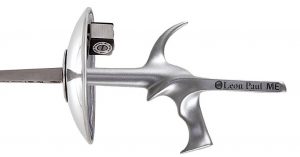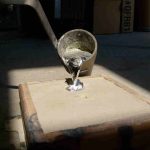We use cookies
Using our site means you agree to the use of cookies and similar technologies. Read about our policy and how to disable them here
 I am also a big believer in the difference that a number of small improvements in your equipment can make to your overall performance. This approach was spearheaded by Sir David Brailsford who coined the phrase "marginal gains" at British Cycling.
He explains "The whole principle came from the idea that if you broke down everything you could think of that goes into riding a bike, and then improved it by 1%, you will get a significant increase when you put them all together,".
https://youtu.be/THNBIQenywc?t=6m46s
You can apply this to anything from a business to your camping equipment or a sport. At British cycling this went to extreme lengths but they had huge success as a result of the approach. One example of the application of this philosophy was that the athletes travelled with their own pillows. This meant that they were able to sleep a bit better or at least more consistently and this slightly improved their performance. On its own it probably didn't help much but in conjunction with hundreds or even thousands of small improvements it makes a huge difference.
I am also a big believer in the difference that a number of small improvements in your equipment can make to your overall performance. This approach was spearheaded by Sir David Brailsford who coined the phrase "marginal gains" at British Cycling.
He explains "The whole principle came from the idea that if you broke down everything you could think of that goes into riding a bike, and then improved it by 1%, you will get a significant increase when you put them all together,".
https://youtu.be/THNBIQenywc?t=6m46s
You can apply this to anything from a business to your camping equipment or a sport. At British cycling this went to extreme lengths but they had huge success as a result of the approach. One example of the application of this philosophy was that the athletes travelled with their own pillows. This meant that they were able to sleep a bit better or at least more consistently and this slightly improved their performance. On its own it probably didn't help much but in conjunction with hundreds or even thousands of small improvements it makes a huge difference.
 sand casting[/caption]
Normal pistol grips are made from sand cast aluminium, a cheap but low quality process. The molten aluminium is poured by hand into a mold made from an impression pressed in damp sand which produces a rough inconsistent finish that often contains impurities.
The Mag-Tec handle is high pressure die cast. In this process the molten metal is forced at great pressure into a steel mold which allows a level of precision and consistency that sand casting simply can't match. It also enables the use of exotic materials like magnesium who's highly reactive nature makes them incompatible with sand casting. Due to the high cost of the process you usually only find magnesium parts on high end consumer products.
The pioneering use of magnesium reduces the weight of the handle by 34% but it remains just as strong. The handle is finished with a vapor deposited matt silver coating that is usually used on laptops to give it a durable tactile finish with just the right amount of grip.
sand casting[/caption]
Normal pistol grips are made from sand cast aluminium, a cheap but low quality process. The molten aluminium is poured by hand into a mold made from an impression pressed in damp sand which produces a rough inconsistent finish that often contains impurities.
The Mag-Tec handle is high pressure die cast. In this process the molten metal is forced at great pressure into a steel mold which allows a level of precision and consistency that sand casting simply can't match. It also enables the use of exotic materials like magnesium who's highly reactive nature makes them incompatible with sand casting. Due to the high cost of the process you usually only find magnesium parts on high end consumer products.
The pioneering use of magnesium reduces the weight of the handle by 34% but it remains just as strong. The handle is finished with a vapor deposited matt silver coating that is usually used on laptops to give it a durable tactile finish with just the right amount of grip.
The answer is simple, it makes your weapon lighter which in turn makes it faster.
James Davis World number 6 foilist is a total convert to this handle and says:"Regards to the new Mag-tec handles, I genuinely love them. I think it's such a great idea with a very nice finish. I was in the process of making my blades the lightest I possibly could and this was the finishing touch.
One things a lot of fencers that I talk to think is that because it is so light it will change the balance of the weapon which will make it more difficult to use. My answer is that is complete nonsense. Handles from different manufactures come in all different weights and sizes. This is taking it to the extreme of weight saving. It takes about a week to fully adjust to the handle; the same it would take to adjust to any other new handle. Once you are used to it you can easily feel that you are able to move the weapon more quickly."

